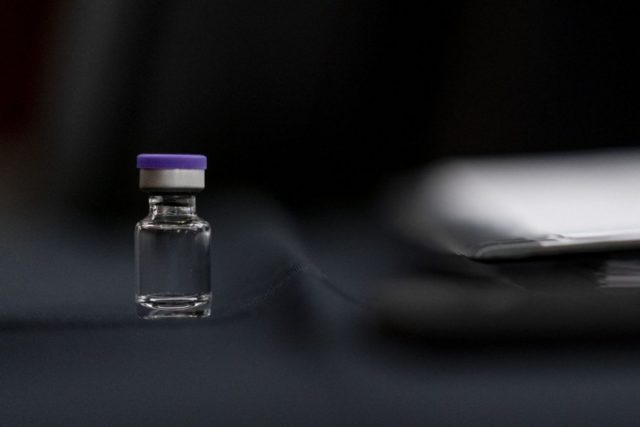Dec. 12 (UPI) — The Food and Drug Administration has issued emergency use authorization for the first COVID-19 vaccine, setting the stage for the United States to begin vaccinations next week.
The EUA allows the Pfizer-BioNTech vaccine to be distributed in the United States to individuals 16 years of age and older, the FDA announced.
“The FDA’s authorization for emergency use of the first COVID-19 vaccine is a significant milestone in battling this devastating pandemic that has affected so many families in the United States and around the world,” FDA Commissioner Stephen Hahn, M.D., said in a statement Friday.
“Today’s action follows an open and transparent review process that included input from the independent scientific and public health experts and a thorough evaluation by the agency’s career scientists to ensure this vaccine met FDA’s rigorous, scientific standards for safety, effectiveness, and manufacturing quality needed to support emergency use authorization.”
FDA officials said that after the EUA approval, they expected the first doses of the virus to begin shipping to hospitals within about 24 hours.
The U.S. Centers for Disease Control and Prevention must vote to recommend the vaccine before it can be administered, though. The agency was scheduled to meet on the issue Saturday morning.
President Donald Trump hailed the EUA approval Friday evening in a video recorded from the Oval Office. He described the vaccine as safe and thanked the scientists for developing it within nine months of the start of the pandemic.
“This is one of the greatest scientific accomplishments in history,” he said.
“It will save millions of lives and soon end the pandemic once and for all.”
pic.twitter.com/ofLq3OMicv— Donald J. Trump (@realDonaldTrump) December 12, 2020
The EUA is different from a full FDA approval, which is given after a much longer testing and review process.
In issuing the EUA, experts determined the potential benefits of the vaccine outweigh the known and potential risks enough to support its use in millions of people. The FDA expects Pfizer to continue clinical trials to obtain additional safety and efficacy information — particularly in children.
“While not an FDA approval, today’s emergency use authorization of the Pfizer-BioNTech COVID-19 Vaccine holds the promise to alter the course of this pandemic in the United States,” Peter Marks, director of the FDA’s Center for Biologics Evaluation and Research, said in a statement.
The Pfizer BioNTech COVID-19 vaccination requires two doses three weeks apart. Available safety data used for the EUA included an ongoing randomized, placebo-controlled international study with 37,586 participants, the majority of whom were U.S. participants.
The late-stage trial results showed the vaccine has 95% efficacy.
The vaccine works by containing a small piece of the SARS-CoV-2 virus’s genetic material, prompting the body to make the virus’ “spike” protein.
“When a person receives the vaccine, their body produces copies of the spike protein, which does not cause disease, but triggers the immune system to learn to react defensively, producing and immune response against SARS-CoV-2,” the FDA said.
Initial shipments of the vaccine will begin within 24 hours of final authorization, Operation Warp Speed officials said.
Health and Human Services Administrator Alex Azar said Friday that the first Americans could begin receiving doses of the vaccine Monday or Tuesday.
Some 20 million people could be vaccinated by the end of the month with another 50 million inoculated in January, he told ABC’s Good Morning America.
In the United States, COVID-19 has infected more than 15 million people and killed over 295,000, according to Johns Hopkins University data.
With the authorization, the United States becomes the sixth country to clear the vaccine following Britain, Bahrain, Canada, Saudi Arabia and Mexico.
Pfizer has said it will be able to supply up to 25 million doses before the end of the year, and 100 million total vaccine doses by March.
The Trump administration also announced Friday that it will purchase an additional 100 million doses of a COVID-19 vaccine candidate called mRNA-1273 from Moderna. The FDA has yet to approve an EUA for that vaccine, but is scheduled to meet to discuss it next week.
The Centers for Disease Control and Prevention expects demand to exceed supply during the first months of the national COVID-19 vaccination program.

COMMENTS
Please let us know if you're having issues with commenting.